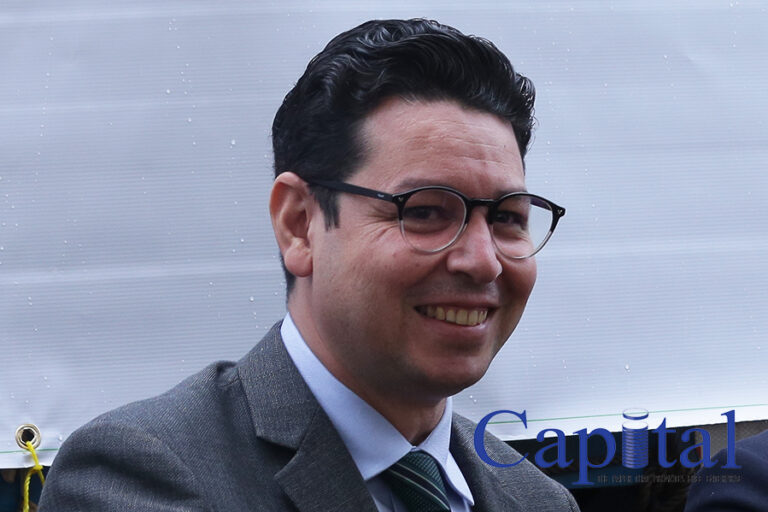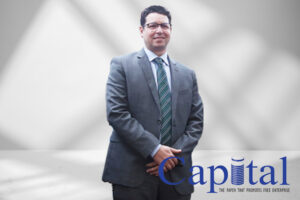The publication of George Gilder’s “Wealth and Poverty” in 1998 and, later, his work on “Recapturing the Spirit of Enterprise” brought renewed emphasis to capitalism’s spiritual side. George Gilder’s writings, along with Michael Novak’s “The Spirit of Democratic Capitalism”, provided a desperately needed counter to the almost century-long trend of casting capitalism in a morally negative side.
But George Gilder’s books also unfortunately implied that Adam Smith had ignored spiritual aspects of capitalism, suggesting that Smith concerned himself more with technical factors of supply, demand, and price. Such a misperception seeped into the work of writers of all political stripes, resulting in critics of capitalism from the Left, including Michael Harrington and Robert Heilbroner, and from the Right which includes Irving Kristol and Richard Weaver, charging that material progress occurred only at the expense of individual dignity or of society’s spiritual values.
Adam Smith explained that individual self-interest required a person to serve his fellow man to obtain a return. Whatever the motivation, the individual must focus on the desires and needs of others, address those needs, and provide a good or service before receiving any recompense. Another way to look at those activities is as service. A person must first serve others before demanding a return. Determining how much value the service has is fraught with problems if one leaves it to an arbitrary source, such as a government board or commission.
Market economies typically use money as a measure, or symbol, of how much service one individual has provided to others. Economist Walter Williams has detailed on several occasions how the process works in daily life. A woman sits down in a restaurant and orders a meal which represents the accumulated efforts of farmers, shippers, meat packers, the restaurant owner, the waiter, and others; but in order to pay for the meal, she must have money. Her money represents her own service to others that she has performed in her clothing business and the value that others have placed on her service to them. Money acts as a type of “accumulated service to others” which is a proof that the holder has served others, and to what degree.
Assume that an entrepreneur starts a hamburger stand. In doing so, he invests time, energy, and talent procuring products, facilities, and employees. Before earning a single dime, he has served others by making these investments of time, talent, and energy. The entrepreneur still has not received any personal return, which comes from meeting his customers’ culinary needs or desires. What if he provides terrible food? Or what if the food is good, but he is abusive and crabby to his customers? In either case, he will soon be out of business (not in Ethiopia of course!). He has not served his fellow man, nor has he met any need or fulfilled any desire. Note that despite working hard, he has not benefited others!
Consequently, labor itself is not sufficient as a measure of value. Indeed, unwanted labor is economically useless in one economic sense, in that it allows a single person to consume scarce resources without returning anything to society. Rather, labor that does not serve others, in a market sense, is actually consumption, not production. All economic activity can then be summarised with a question – “How have you served your fellow man?”, and an imperative, “Prove it!”
Adam Smith thought that most people were naturally inclined to such service, but that they naturally overestimated the value of their own labor and underestimated that of others. Consequently, the only reliable measure that could adjust for the individual misperceptions of millions of people in the market was the crucial price mechanism. Prices forced on everyone a reality check, so they could not overestimate their own service or undervalue that of others. For that reason, he warned about any distortions of prices brought about by anything other than the market itself. His warning extends to business combinations, monopolies, in current jargon, or businesses obtaining special privileges from governments.
Indeed, it is important to realize that any economic activity not solely derived from market effects can produce negative results. Charity, for example, generates its own economic implications. If individuals, Churches, community groups, or governments provide for nothing, or at artificially lower cost, what others in the market would charge to provide, that free service will have an impact on the price and affect the market. Labor unions have long resisted efforts to have prisoners perform work, contending that “slave labor” undermines the price of “free labor,” and they are correct.
If a farmer simply gave food away for whatever moral motive, it would have the effect of driving down the price of food everywhere, essentially telling other farmers that their service is worth less than it really is. Artists, musicians, writers, and actors have long faced the grim reality that their love of their craft means that they would paint, act, write, or play music if no one paid them, which has had the effect of driving down the price of all art. In short, all activity, even charity, has economic outcomes that affect prices. Giving goods away creates another problem. Gift givers don’t always choose what the recipient wants.
A final point alludes to one of our earlier questions, namely, how do others benefit from the failure of entrepreneurs? First, when entrepreneurs fail, they provide critical information about the wants and needs of others. The collapse of one business company may suggest, for instance, that the location is wrong. But it might also be that the product is poor quality or too expensive, or that the owner have other things to do. Here, one thing is certain. Other aspiring similar businesses will think twice before venturing into that location. Second, failure of a business frees up resources for the use of other businesses. The former location of the failed company may be the perfect location for the business. Third, not only do other businesses benefit from failed enterprises, but consumers profit, too.
In fact, some of the world’s greatest success stories resulted from abject failure. For example, America’s Automaker Henry Ford, banker A. P. Giannini, and department store founder Sam Walton all declared bankruptcy, had their first enterprises fail miserably, or were unceremoniously kicked out of companies they created before they attained ultimate success. In other cases, entrepreneurs have made fortunes or founded thriving businesses in services or with products that few would find lucrative. Yet no matter what path a particular entrepreneur took, each had a single characteristic in common: a willingness to take a risk.
The element of risk taking by entrepreneurs which, again, constitutes an act of faith and not reason, sets them apart from managers and paid employees. No element of business enterprise is risk free, and certainly management and labor have seen periods of mass layoffs. Ultimately, the only source of a job is one’s own talent and labor. The worker’s ability, in essence, creates his own employment demand. But in general, companies in capitalist societies offer a far higher level of income security and, whenever possible, extended employment to managers and employees than typical entrepreneurs ever attain.
In most small businesses, employees receive pay even if there is not enough left for the owner at the end of the week or the month. Different research studies revealed that many small-business owners have reported not taking their salary for years, plowing every cent back into their business.






